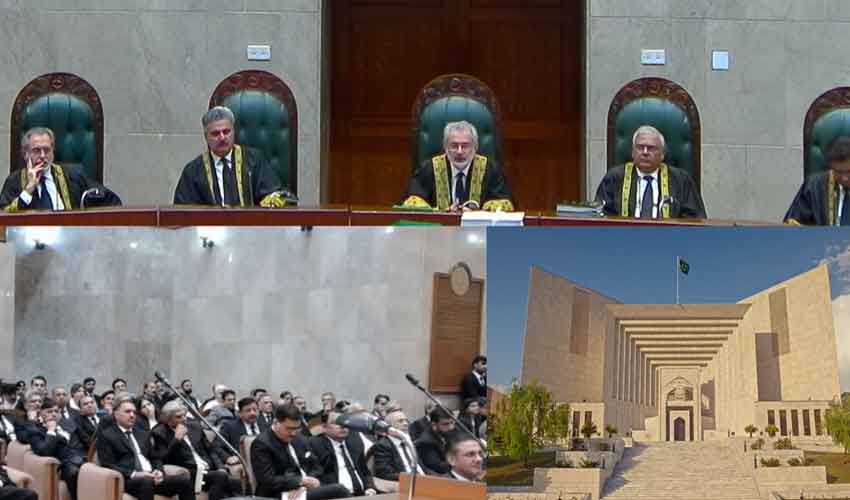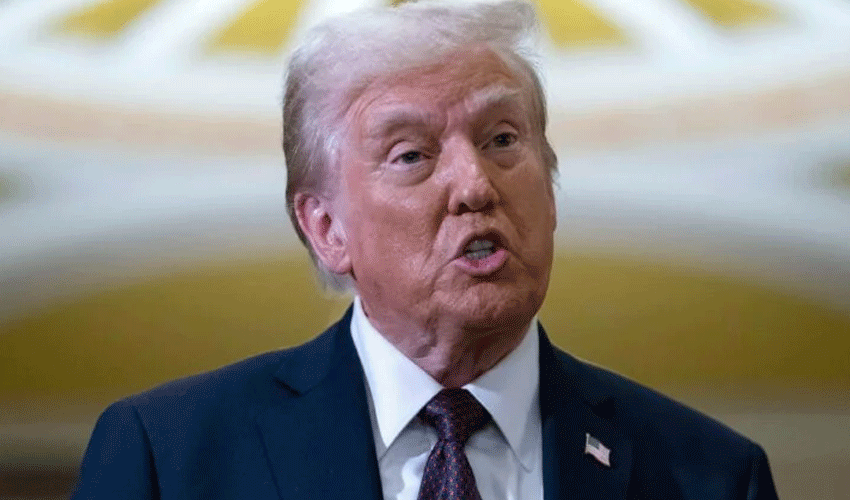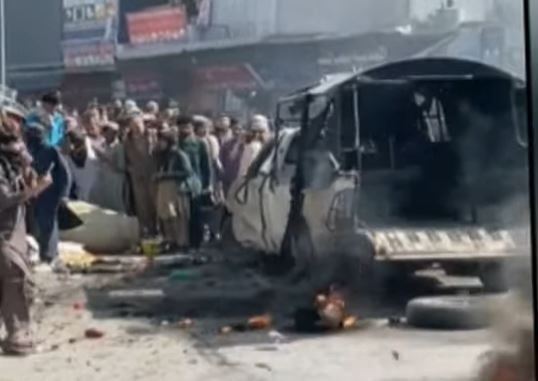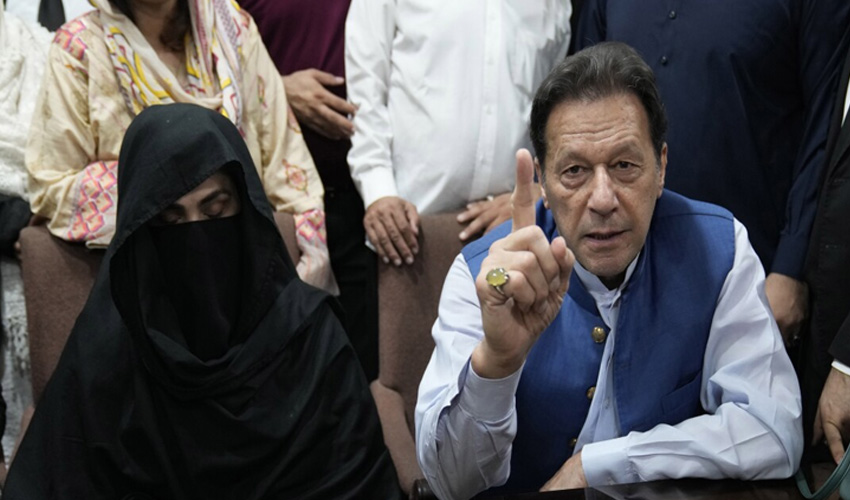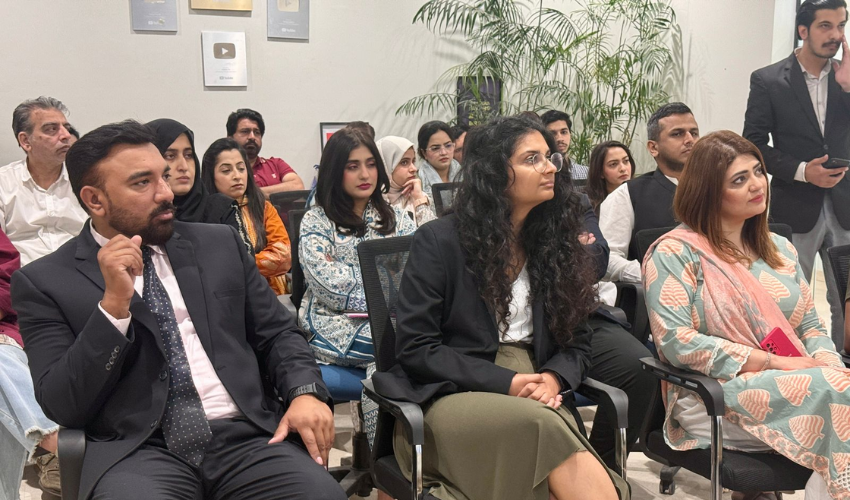Chief Justice of Pakistan (CJP) Justice Qazi Faez Isa has said that there has been transparency in the affairs of the Supreme Court, as earlier it could be determined just by looking at the bench what the case decision would be. Now, the chief justice is not sent a cause list, and it is one's fate which bench hears their case.
In a comprehensive address during a full court reference on Monday, CJP Isa provided an insightful overview of his nearly completed first year in office, highlighting significant judicial reforms and emphasizing the importance of transparency in the judiciary.
He noted that in just nine days, he would complete one year as the chief justice of Pakistan. He said the occasion must be used to reflect on the actions taken by the judiciary under his leadership. One of the first steps he said he took was to convene a full court meeting, where it was decided that cases of public interest would be broadcast live.
He underscored that, previously, the public's understanding of court proceedings was limited to what was presented by TV shows or YouTube content creators. The decision to televise court proceedings was made to allow the public to assess the transparency of the judiciary directly, he added.
CJP Isa also shed light on the judiciary’s efforts to review laws made by the legislature. He highlighted that the full court upheld a law that redistributed powers within the judiciary, ensuring that no single individual, including the chief justice, held too much authority.
He also addressed past concerns about the formation of benches, saying that earlier, people used to say that just the formation of a bench can tell what its decision is going to be. "Today, I don't even know what will be the decision of the judges on my right and left," Justice Isa remarked.
He suggested lawyers to review the judiciary today and if they could still figure out the decision of a case from the formation of the bench. "If this is not the case now, then acknowledge that there has been transparency," the CJP said.
Acknowledging that every judge has inherent inclinations, Justice Isa explained how, in the past, lawyers would often prefer certain judges to hear their cases based on their perceived inclinations. "It is usually determined when a case is brought before a certain judge whether he will give weight to the prosecution or not. In so much experience, such inclination develops towards something," he explained.
However, he asserted that the judiciary has done away with this practice, adding that sometimes senior journalists make him laugh when they say the chief justice did not fix a case. He added that now a chief justice does not fix a case; it is the duty of a committee.
Chief Justice Isa emphasized the importance of self-accountability within the judiciary. He called on the public and the media to hold the judiciary accountable while urging journalists to report responsibly, avoiding the spread of false information.
He also mentioned that the law does not allow those on deputation to stay beyond their terms, as that stops the progress of the court's own people. He added that a 3,000cc Mercedes reserved for a chief justice was returned, as was the SUV in Lahore.
The CJP mentioned that general elections were not being held during the caretaker government, and when the case was brought before them, "we decided it in three hearings". "We did not overstep anyone's authority in that decision," the CJP maintained.
He further said that if the judges held others accountable and not themselves, people would not value their decisions. "Allegations were levelled against our own judge and his case was tried in open court. The judge was dismissed by the Supreme Judicial Council," Justice Isa recalled, stressing that this court has also made mistakes.
"One cannot move in the right direction without admitting to mistakes. The Zulfikar Ali Bhutto reference was not heard for 10 years. We heard the reference and ruled that Bhutto did not get a fair trial." CJP Isa remarked, adding that the wrong dismissal of an Islamabad High Court judge was annulled, a high treason case decided against an anti-constitutional individual under Article 6, a Lahore High Court decision was annulled wherein it declared the trial illegal without any authority.
Chief Justice Isa concluded by highlighting the judiciary's ongoing efforts to manage and reduce the backlog of cases. He announced the formation of a Case Management Committee, led by Justice Mansoor and Justice Muneeb Akhtar, to streamline the process further.
He also shared a personal anecdote, mentioning that he had got released peacocks that had been kept at the chief justice's residence.





